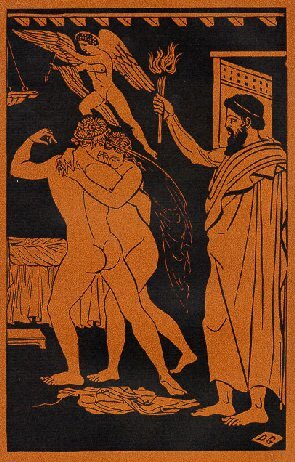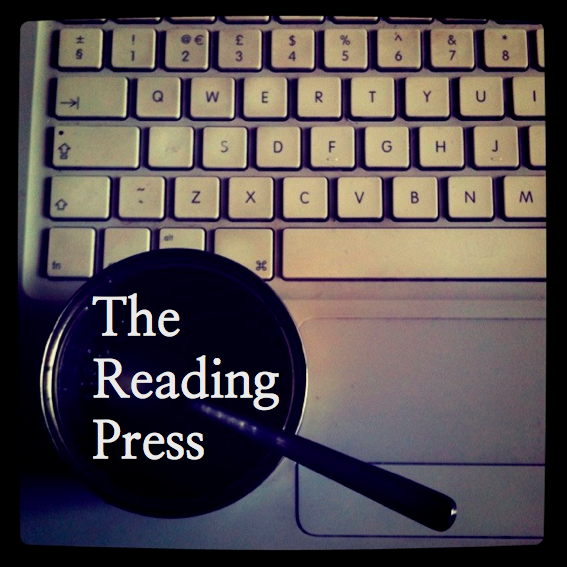 Chaucer’s main source material when he wrote his epic poem Troilus and Criseyde was Boccaccio’s Il Filostrato. In Il Filostrato Troilio is a rather straightforward young man who pursues the beautiful Cressida and meets with little resistance. Their coming together is rather simple, and in the prologue, Boccaccio’s narrator even identifies with Troilio as a lover.
Chaucer’s main source material when he wrote his epic poem Troilus and Criseyde was Boccaccio’s Il Filostrato. In Il Filostrato Troilio is a rather straightforward young man who pursues the beautiful Cressida and meets with little resistance. Their coming together is rather simple, and in the prologue, Boccaccio’s narrator even identifies with Troilio as a lover.
Chaucer’s take is a little different.
In Troilus and Criseyde Troilus is, in fact, rather passive in his actions. True, the drama of his feeling almost overwhelms the poetry of Book I, but he actually does very little. Meanwhile, Criseyde is continually resistant to any mention of his affection (and even when she gives into it, she is adamant that she wants to keep the independence she has as a widow).
But, of course, a passive hero and a resistant heroine are never going to come together of their own free will, and so Chaucer creates the character of Pandarus. Friend to Troilus, and uncle to Criseyde, Pandarus is a bizarre creature, who initially seems to genuinely care for both of the lovers, and even speaks some sensible words to Troilus. But as the narrative goes on, he becomes more and more manipulative, putting into action the things Troilus lacks the will to do.
By lying to her, Pandarus in fact takes over almost complete management of Criseyde’s physical being.
In Book III, for example, he uses lies to persuade Criseyde to come to his house, and then to stay the night, and then to take a room in a quieter, more intimate part of the house, and then to allow Troilus to visit her in her bedroom that night, and so on and so forth. Almost always, his final argument is that if she won’t do as he says, Troilus will surely die of heartache (and Pandarus will die from sorrow over the death of his friend).
Reading this, as the lies build and Pandarus becomes ever more manipulative, you can’t help but question Criseyde’s consent. At one point Pandarus practically strips Troilus and forces him into Criseyde’s bed. Criseyde often says no to things initially, but Pandarus always gets her consent in the end. However, the way he gets her consent is by lying to her, and whilst, to my mind, there is no question as to whether or not Criseyde is being coerced – she is! – this dynamic has brought to mind an entirely different question.
Can anyone give their consent if they are being lied to about their situation?
In the past I have been on all three sides of cheating; I have been cheated on, I have cheated on people, and I have slept with people who were cheating on their partners. I won’t ever deny this, and I still strive to withhold from judging those who do cheat – after all, every situation is unique – but I made a decision never to participate in cheating again. I wish I could say this was for moral reasons, but whilst I may have taken on some sense of morality, the main reasons I made this definitive decision were selfish: cheating made me feel bad, and I realised that I deserved more than half a partner.
Having given up the need to defend my own actions, I now have a different view of cheating, and, perhaps because I no longer have to deny it to myself, something about it really bothers me. Reading Troilus and Criseyde over the past five weeks, I have finally figured out what it is about cheating that makes me feel so uncomfortable, and it is this question of consent.
Let me give you an example:
John and Jane are married. Unbeknownst to Jane, John has been sleeping with somebody else. If Jane knew that he was cheating on her, she might withdraw her consent to sleep with John. But she doesn’t know, and so when they have sex, she is giving her consent based on the incorrect belief that John is being faithful.
Therefore, is there not a question as to the validity of Jane’s consent?
On the one hand, we as human beings have to take into account that at any given moment, we may be lied to. By being part of society, we accept that we may not always get the truth. Therefore, when anyone gives their consent to sleep with someone, they accept that there is a chance that the other person is lying to them, and that has to be taken into account as part of their decision.
But we all know how important trust is in relationships. There comes a point when consent may not be based on the individual’s own instinct, but on how much the individual trusts his/her partner. Therefore, if his/her partner is lying to the individual, the conditions of their consent may be undermined.
Really, what I wish to do here is to present uninformed consent as the grey area between informed consent, and non-consent.
There is no final answer to this problem: people cheat for a variety of reasons, and I have even come across cases – mostly where children are involved – in which cheating seemed to be the lesser of two evils. But still, this question of consent bothers me.
We can rarely be 100% sure that the conditions of our consent are being met, but there is most definitely a difference between the kind of knowledge we need in the early stages of dating, and the kind of trust we rely on in long term relationships in order to make an informed decision.
The only kind of conclusion I can come to is this: perhaps when we, as human beings, make the decision to sleep with someone, we ought to also take into account how that decision may affect the consent of the other people in our lives. Because in this world of sexual freedom, and BDSM, and polyamory, the importance of consent seems to be the one thing we all agree on. But are we really defining it honestly?
















Clearly whether writing fiction or non-fiction, your literary skills remain compelling.
It is a subject that I have often thought about, for several reasons. And the way you lay it out is quite appropriate.
Can we ever criticize someone for a choice that brings them happiness and hurts no one, as well as the lie is maintained by all involved. Is it wrong? Selfish? Good questions. But we all live just one life and it seems foolish to limit one’s pleasure by another and their own definition of morality – which could be very different from your own.
Thanks for sharing. As always, an enjoyable read.
See, that’s the thing: I agree with you. But no matter how many times I say “we only live one life”, I can’t help being plagued by the thought of “yes – and how can I justify wasting someone else’s ONE life?”
It’s such a tricky subject.